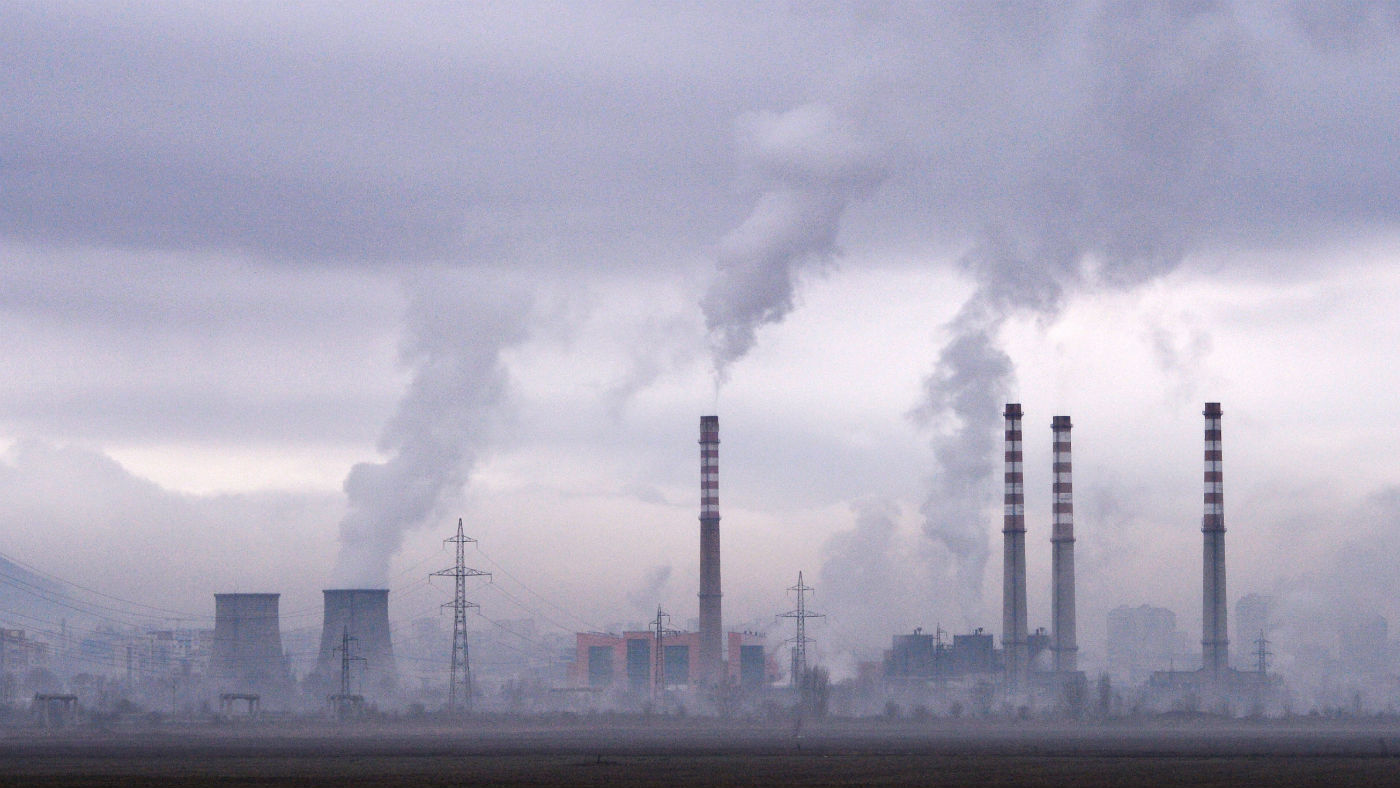Too late: Global warming target 'unachievable'
Scientists say we may have missed our chance to limit climate change, as Trump disbands his climate advisory committee

A free daily email with the biggest news stories of the day – and the best features from TheWeek.com
You are now subscribed
Your newsletter sign-up was successful
The world may have already missed its chance to avoid catastrophic levels of global warming, according to new research.
Using computer models to assess what needs to be done to restrict global warming to less than 2C, scientists found the planet is likely to overshoot the limits adopted by the Paris climate agreement unless unilateral efforts are undertaken to bring temperature rises under control with geo-engineering projects intended to change the climate for the better.
One suggestion is the creation of giant biological machines to grow vegetation which absorbs carbon, then burning the resulting biomass in power stations that capture the emissions.
The Week
Escape your echo chamber. Get the facts behind the news, plus analysis from multiple perspectives.

Sign up for The Week's Free Newsletters
From our morning news briefing to a weekly Good News Newsletter, get the best of The Week delivered directly to your inbox.
From our morning news briefing to a weekly Good News Newsletter, get the best of The Week delivered directly to your inbox.
Writing in the journal Climate Change, researchers said this would require a "complete shift" to an energy system based on renewables, nuclear, hydrogen, and bio-energy with carbon capture and storage.
Scientists previously thought limiting global warming to 2C would avoid the most dangerous effects, "but there is increasing evidence that allowing it to go much above 1.5C could lock in considerable sea level rise for the next few centuries", says The Independent.
So far the planet has warmed by just under 1C in little over a century.
The latest warnings about the effects of global warming come as the Trump administration announced it is disbanding the federal advisory panel on climate change.
A free daily email with the biggest news stories of the day – and the best features from TheWeek.com
The 15-member committee of scientists, academics and local officials is part of the National Climate Association, which aims to help officials and policy makers integrate the US government's climate change analysis into their long-term planning.
Its four-year mandate expired on Monday and the Washington Post says it will not be renewed by the administration.
While many state and local officials have pressed the federal government for more concrete guidance on how to factor climate change into future infrastructure, "President Trump has moved in the opposite direction", says the paper. He recently signed an executive order overturning a federal requirement that projects built in coastal floodplains and receiving federal aid should take projected sea-level rises into account.
-
 How the FCC’s ‘equal time’ rule works
How the FCC’s ‘equal time’ rule worksIn the Spotlight The law is at the heart of the Colbert-CBS conflict
-
 What is the endgame in the DHS shutdown?
What is the endgame in the DHS shutdown?Today’s Big Question Democrats want to rein in ICE’s immigration crackdown
-
 ‘Poor time management isn’t just an inconvenience’
‘Poor time management isn’t just an inconvenience’Instant Opinion Opinion, comment and editorials of the day
-
 Will increasing tensions with Iran boil over into war?
Will increasing tensions with Iran boil over into war?Today’s Big Question President Donald Trump has recently been threatening the country
-
 Corruption: The spy sheikh and the president
Corruption: The spy sheikh and the presidentFeature Trump is at the center of another scandal
-
 Rubio boosts Orbán ahead of Hungary election
Rubio boosts Orbán ahead of Hungary electionSpeed Read Far-right nationalist Prime Minister Viktor Orbán is facing a tough re-election fight after many years in power
-
 Greenland’s capital becomes ground zero for the country’s diplomatic straits
Greenland’s capital becomes ground zero for the country’s diplomatic straitsIN THE SPOTLIGHT A flurry of new consular activity in Nuuk shows how important Greenland has become to Europeans’ anxiety about American imperialism
-
 Epstein files topple law CEO, roil UK government
Epstein files topple law CEO, roil UK governmentSpeed Read Peter Mandelson, Britain’s former ambassador to the US, is caught up in the scandal
-
 Iran and US prepare to meet after skirmishes
Iran and US prepare to meet after skirmishesSpeed Read The incident comes amid heightened tensions in the Middle East
-
 Which way will Trump go on Iran?
Which way will Trump go on Iran?Today’s Big Question Diplomatic talks set to be held in Turkey on Friday, but failure to reach an agreement could have ‘terrible’ global ramifications
-
 Israel retrieves final hostage’s body from Gaza
Israel retrieves final hostage’s body from GazaSpeed Read The 24-year-old police officer was killed during the initial Hamas attack